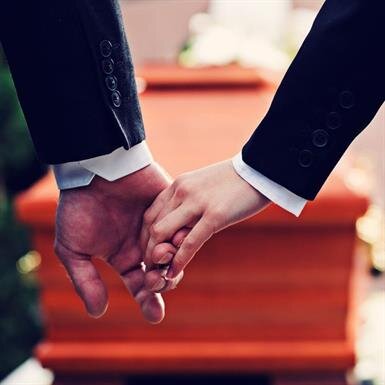Grief Support Guide
How to truly support yourself and others at a time of grief.
Grief. It can take so many forms and you often don’t know how you’ll react until you’re living through it. That’s OK. There are no wrong or right ways to approach grief. All you can do is try to deal with your feelings in a way that feels right to you.
If you’re trying to support a family member or friend, figuring out the right things to say or do can seem daunting .Luckily, you’ve already taken the first step towards helping them, simply through the act of caring. But sometimes, you might wish to do a little more to show support.
Some people feel a sense of support through a thoughtful gift like a card or flowers. Others respond better to you just taking the time to sit, reflect and share stories with them.
Get support from the comfort of your own home.
Grief is hard to take on alone and you don’t need to (and often shouldn’t) go at it alone. You might be hesitant to ask others for help, and that’s why many find these interactive videos helpful to exploring their own emotions and feelings. Dr. Virginia Simpson is an Executive Counseling Director who created a set of online grief resources, which can help you cope in the way that feels right to you. She takes you through the dimensions and dynamics of grief, helping you to discover coping techniques that heal and encourage you to move forward.
Support your family, even the littlest ones.
Children may not understand the details and specifics, but they can often surprise you with their sensitivity and instinctual way of detecting grief. As the adult, you want to find ways to help them celebrate the life of your loved one and enjoy happy memories and stories.
The most important way to support your family is to simply listen to them and pay close attention to the feelings and needs of younger ones. If you sense any serious change in behavior, talk to them to try to get to the root of their feelings.
For additional help, refer to this great resource from Sesame Street, which will help your family move forward in a healthy and educated manner.
Learn about each and every way you can support others.
Supporting your friends and family does not have to be complicated. Here are just a few powerful ways you can show support to your loved ones during this difficult time:
- Share memories. Stories and memories can be incredibly cathartic during difficult times.
- Be there for them whenever possible, whether it’s as a shoulder to cry on or to help them prepare for a service.
- Listen. All too often, we forget how important just listening can be.
- Give a small gift to show your love and support. It could be flowers, a favorite food, or a book that brings them joy. Small gifts show that you’re there, thinking of them.
Get additional resources about support.
No one should have to experience grief alone. If you’re having a hard time, reach out to friends and family and let them know that you need them there. There’s no shame in asking for help.
If you want to help support a loved one in need, just let them know that you’re there for them, at any hour, for anything. If you need additional help, check out our grief support resources.
Get daily support to help you through each day.
Could you benefit from a daily dose of encouragement and inspiration? We’ve been there too. There are simply some days when you need a little extra light in your life. Sign up for daily emails to get hope and motivation in your inbox, each and every morning. Visit our sign up page for 365 days of support.





